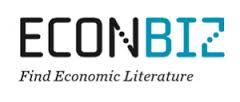Conflict of Interest
The Journal of Commerce and Trade is dedicated to upholding the utmost standards of integrity, transparency, and ethical behavior in the realm of academic publishing. To safeguard the credibility and impartiality of the research we disseminate, we mandate that all authors, reviewers, editors, and members of the editorial board disclose any potential conflicts of interest that could affect their work or decision-making.
Definition of Conflict of Interest
A conflict of interest occurs when an individual's personal, financial, professional, or other interests have the potential to undermine, or seem to undermine, the objectivity, integrity, or fairness of the research, review, or editorial processes. Such conflicts may encompass, but are not limited to:
Financial interests (such as funding sources, employment, consulting fees, stock holdings, or patents). Personal relationships (including familial connections, close friendships, or professional partnerships). Academic or professional affiliations that might sway judgment.
Intellectual or ideological biases that could compromise the neutrality of the work.
Responsibilities of Authors
Disclosure: Authors are obligated to reveal any potential conflicts of interest at the time of submission. This encompasses both financial and non-financial interests that may be perceived as affecting the research or its interpretation.
Statement in Manuscript: A conflict of interest statement should be included in the manuscript, usually under a distinct heading (e.g., "Conflict of Interest") prior to the references section. If there are no conflicts, authors should state: "The authors declare no conflict of interest."
Funding Sources: Authors are required to disclose all funding sources or financial support for the research, including grant numbers and institutional affiliations.
Responsibilities of Reviewers
Disclosure: Reviewers are required to disclose any conflicts of interest that may influence their assessment of a manuscript. This includes any personal, professional, or financial relationships with the authors or their institutions.
Recusal: Should a reviewer recognize a potential conflict of interest, they must notify the editor and, if necessary, withdraw from the review process.
Responsibilities of Editors and Editorial Team
Impartiality: Editors and editorial board members must ensure that all submissions are processed fairly and without bias, free from personal, financial, or professional influences.
Disclosure: Editors and board members are required to disclose any conflicts of interest related to manuscripts under review and must recuse themselves from the decision-making process if a conflict is present.
Transparency: Any conflicts of interest involving editors or board members must be reported to the journal’s editorial office for appropriate measures.
Management of conflicts of Interest Evaluation
The editorial team will evaluate any disclosed conflicts of interest to assess their possible effects on the integrity of the research or review process.
Resolution: Should a conflict be identified, the journal may implement suitable actions, such as appointing a different editor or reviewer, requesting further disclosures, or rejecting the submission if the conflict remains unresolved.
Disclosure Publication: All disclosed conflicts of interest will be made public alongside the manuscript to promote transparency and enable readers to assess their potential influence on the research. Non-Compliance Neglecting to disclose a conflict of interest may lead to the rejection of the manuscript, retraction of a published article, or other corrective measures as determined by the editorial board.
By following this policy, Journal of Commerce and Trade seeks to maintain the highest ethical standards and ensure the credibility of the research we publish. We urge all participants to act with integrity and transparency throughout the publication process.
Queries
In case of any query, message or email to Chief Editor.
Updated: 15 February, 2025.
CC BY License:

Except where otherwise noted, content on this site is licensed under a Creative Commons Attribution 4.0 International License.










